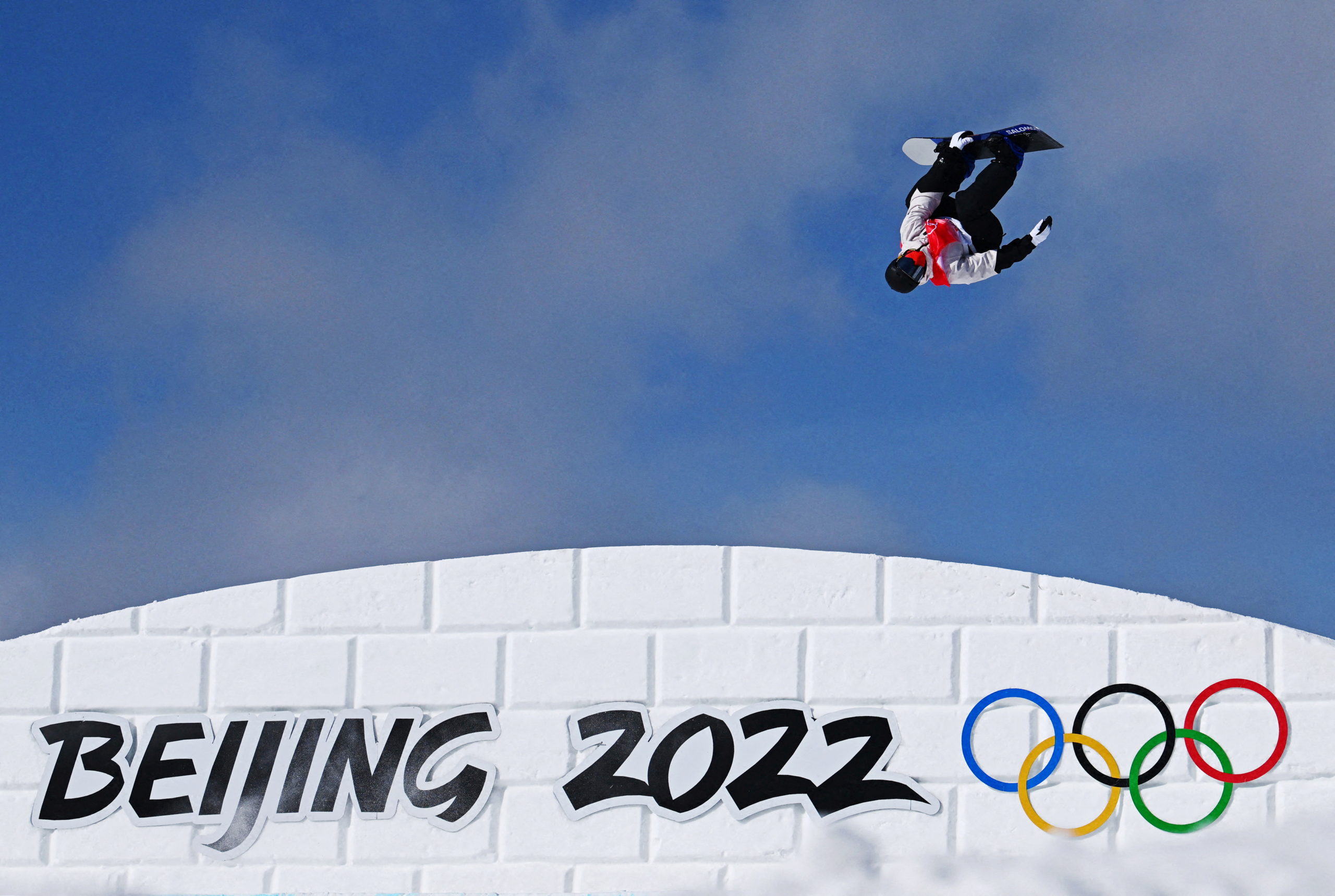US team officials play down the politics at Winter Olympics

2022 Beijing Olympics – Snowboard – Men’s and Women’s Slopestyle Training – Genting Snow Park, Zhangjiakou, China – February 3, 2022. An athlete in action during training. REUTERS/Dylan Martinez TPX IMAGES OF THE DAY
BEIJING—United States Olympic team officials said on Friday they hoped to keep the burden of politics off their athletes at the Beijing Games after months of outcry over China’s human rights record.
The U.S. was one of several countries to announce a diplomatic boycott of the Olympics, declining to send government officials to the Games citing China’s treatment of Uyghurs and other Muslim minority groups.
China denies allegations of human rights abuses.
U.S. Olympic and Paralympic Committee (USOPC) chair Sarah Lyons said she wanted to leave the politics to the politicians.
“We were very close to having the athletes bear the burden of trying to send a message that the government wanted to send,” Lyons told reporters at a news conference hours before the opening ceremony at the Bird’s Nest stadium.
“We think that diplomats and government agencies should be working one with the other to resolve the world’s differences and we think the athletes should be able to do what they do best.”
About 80% of the United States athletes in Beijing will take part in the opening ceremony, team chief Rick Adams said.
A report in the Washington Post on Thursday said U.S.-based human rights activists had been working with athletes from several western countries on a boycott of the ceremony.
“In terms of opening ceremony, it may even be a record, we have 80% of our athletes walking tonight,” Adams told the news conference.
Attendance at the opening ceremony is not compulsory for athletes, who often skip it for a variety of reasons including a desire to rest or avoid the cold at the outdoor event.
Individual events kicked off this week in Beijing after dire warnings from U.S. officials, including House of Representatives Speaker Nancy Pelosi who on Thursday urged U.S. athletes not to risk angering the “ruthless” Chinese government.
USOPC CEO Sarah Hirshland told Friday’s news conference that U.S. athletes were not given edicts on what they were allowed to say before, during and after competition.
“We didn’t issue warnings, we didn’t issue proclamations,” said Hirshland.
“(We have) provided information so that athletes are in a position to make a choice and to understand the environment that they are going to be in and who our host is and, frankly, we’ve done that for several Games.”